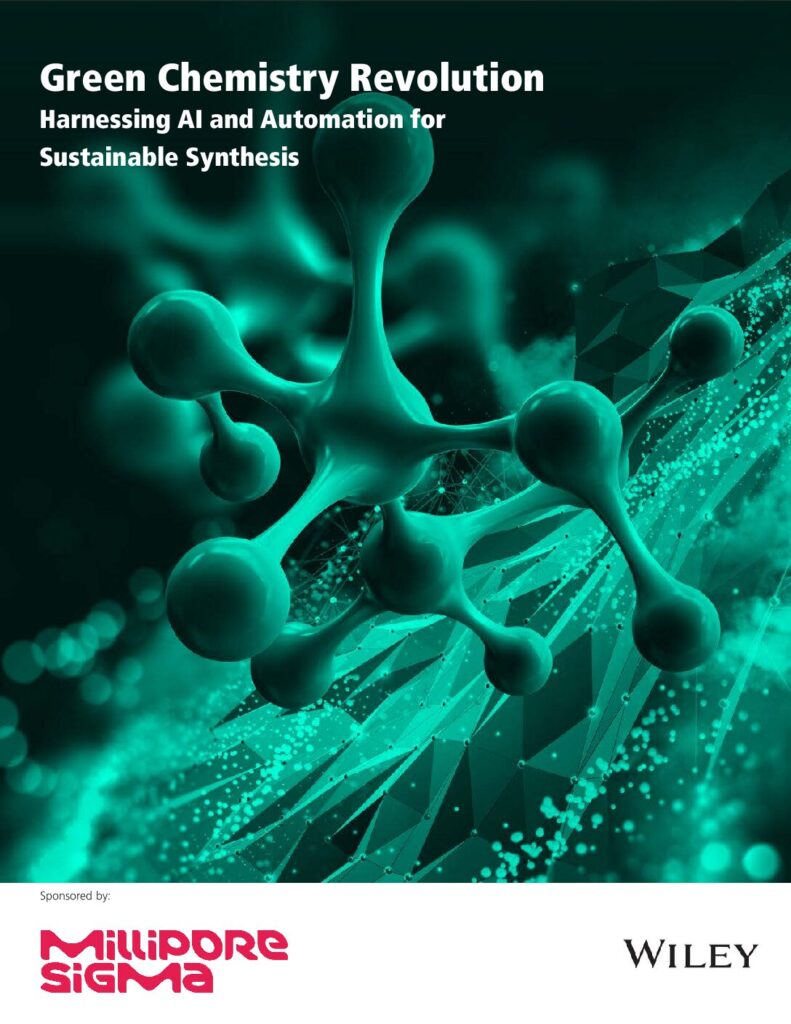Download this complimentary Expert Insights eBook today!
The advent of AI and automation in chemical synthesis marks a transformative shift toward sustainable manufacturing practices. These cutting-edge technologies empower researchers to devise novel methodologies for generating pharmaceuticals and agrochemicals. By using AI to analyze and reuse materials that would otherwise be discarded, chemists can now find new ways to make valuable products while also caring for our environment.
Our free eBook offers a comprehensive journey through the rich tapestry of computational analysis in synthetic planning. Learn how the collaboration of expert knowledge with machine learning is revolutionizing retrosynthetic strategies. An interview with Prof. Timothy Cernak provides a glimpse into the potential of computer-aided synthesis planning to unlock the chemistry of tomorrow.

What you will learn:
- Discover how AI streamlines the drug development process through automation.
- Learn about the precision enhancements in chemical reactions due to AI planning.
- Understand how AI and robotics minimize human input in complex chemical syntheses.
- Explore how computational analysis turns industrial waste into useful chemicals.
- Gain insight into how AI rapidly optimizes the synthesis of new compounds.
Table of Contents
Synthetic Automations: A Revolution from Stone Age to Modern Era
Adapted from Adapted from Fang, G., Lin, D.-Z. and Liao, K.
Computational Analysis of Synthetic Planning: Past and Future
Adapted from Wang, Z., Zhang, W. and Liu, B.
Synergy Between Expert and Machine-Learning Approaches Allows for Improved Retrosynthetic Planning
Adapted from Badowski T., et al.
Computer-Assisted Design of Sustainable Syntheses of Pharmaceuticals and Agrochemicals from Industrial Wastes.
Adapted from Le Pogam, P., et al.
Artificial-Intelligence-Driven Organic Synthesis— En Route towards Autonomous Synthesis?
Adapted from Empel, C. and Koenigs, R. M.
Unlocking the Chemistry of Tomorrow with Computer-Aided Synthesis Planning
Interview with Professor Tim Cernak

